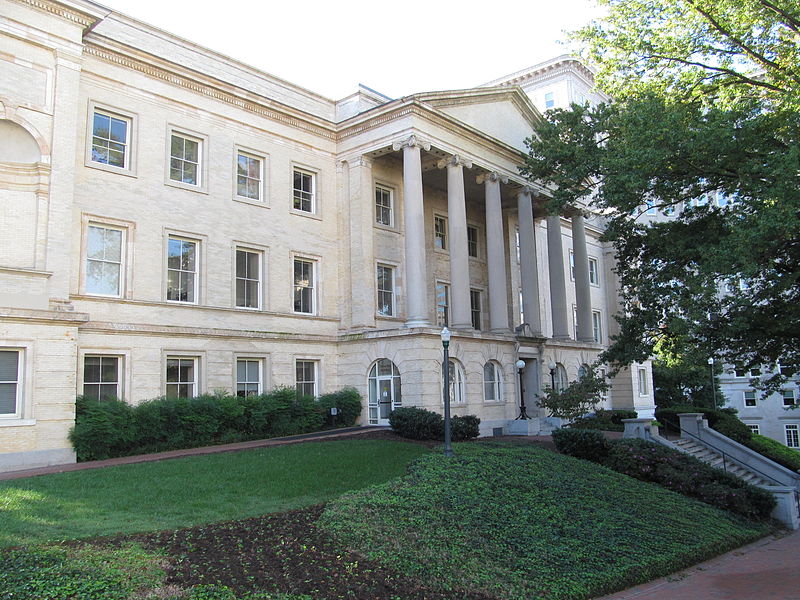
RICHMOND, Va. — Legislators in Virginia repealed longstanding laws earlier this year that criminalized fornication and profanity, with Gov. Ralph Northam signing his name to the repeals.
“We should not have laws that make most of the population into criminals,” state Del. Mark Levine, D-Alexandria, who introduced House Bill 245, told CNN. “Times are very different now than they were in the 17th and 18th centuries.”
A section of Virginia’s “Crimes Involving Morals and Decency”, dating to early America, had outlawed fornication, making it punishable up to a fine of $250.
“Any person, not being married, who voluntarily shall have sexual intercourse with any other person, shall be guilty of fornication, punishable as a Class 4 misdemeanor,” the law had read.
“It’s a stupid law. It’s crazy,” Levine told WTVR-TV. “No one should think they can be prosecuted for this common practice. … How is Virginia for lovers if lovers can’t love each other?”
The law had been rarely enforced the past several decades, only being utilized when bundled with other crimes. Attempts to repeal the law, including as recently as 2014, all failed.
“I don’t want to see it changed,” Jack Knapp, then-director of the Virginia Assembly of Independent Baptists, told the Daily Press in 1993. “The criminal code as it is stated is very supportive of the biblical stand.”
The Supreme Court of Virginia struck down the law in 2005 in the case of Martin v. Ziherl, as it pointed to the 2003 the Supreme Court decision of Lawrence v. Texas, which legalized homosexual sex acts in declaring, “Their right to liberty under the Due Process Clause gives them the full right to engage in their conduct without intervention of the government.”
Lawmakers also passed HB 1071, introduced by Del. Dawn Adams, D-Richmond, which repealed a 1792 law that made using profanity in public a misdemeanor.
“If any person profanely curses or swears or is intoxicated in public, whether such intoxication results from alcohol, narcotic drug, or other intoxicant or drug of whatever nature, he shall be deemed is guilty of a Class 4 misdemeanor,” the law read. The intoxication aspect of the statute was left in place by Adams.
According to the Virginian-Pilot, Sen. Jill Vogel, R-Fauquier, wanted to keep the law on the books and expressed concern about removing a legal standard for acceptable speech.
“Is it the case then that I will no longer be able to say if I hear my children swear … ‘If you swear, it’s a crime?’” she asked. “That means I no longer have this high Virginia standard to uphold in my house.”
Like the fornication law, others have tried to repeal the statute. The 1989 Virginia Appeals Court ruling in Burgess v. City of Virginia Beach reversed a man’s conviction for swearing after being pulled over by a police officer, stating, “While we in no way condone the language of Burgess, we hold that since the ordinance is susceptible of application to protected speech, it is unconstitutional.”
NPR reported that if Gov. Northam “signs the bill, Virginians will legally be able to curse to their heart’s content starting July 1.”
And that he did, with Northam spokesperson Alena Yarmosky telling the outlet prior to the passage of the repeal, “It’s past time we swore off the antiquated policies of the past.”
As previously reported, in 1775, General George Washington signed an order that prohibited profanity among the U.S. military, and many state governors followed suit.
“The general is sorry to be informed that the foolish and wicked practice of profane cursing and swearing, a vice hitherto little known in our American army, is growing into fashion. He hopes that the officers will, by example as well as influence, endeavor to check it and that both they and the men will reflect that we can little hope of the blessing of Heaven on our army if we insult it by our impiety and folly. Added to this it is a vice so mean and low without any temptation that every man of sense and character detests and despises it,” he wrote.
Ephesians 4:29 says, “Let no corrupt communication proceed out of your mouth, but that which is good to the use of edifying, that it may minister grace unto the hearers.”
1 Corinthians 6:13 teaches, “Now the body is not for fornication, but for the Lord, and the Lord for the body.”
1 Thessalonians 4:3-5,7-8 likewise instructs, “For this is the will of God, even your sanctification, that ye should abstain from fornication, that every one of you should know how to possess his vessel in sanctification and honor, not in the lust of concupiscence, even as the Gentiles which know not God.”
“For God hath not called us unto uncleanness but unto holiness. He therefore that despiseth, despiseth not man but God who hath also given unto us His Holy Spirit.”
Become a Christian News Network Supporter...


